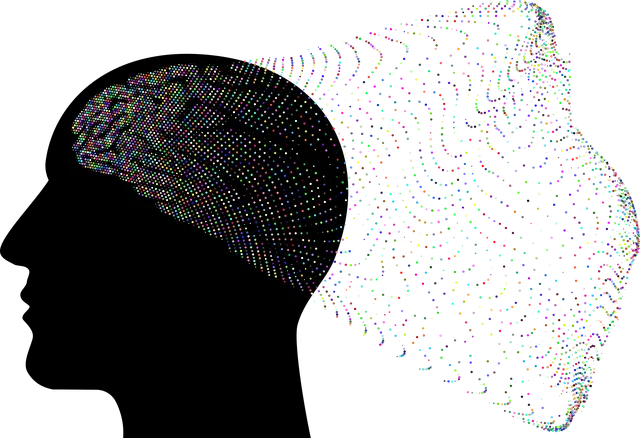Kaiser Permanente Wheat Ridge prioritizes patient well-being through diverse, evidence-based mental health programs, including individual therapy, group counseling, and stress management workshops. They employ rigorous evaluations using both quantitative (surveys, standardized assessments) and qualitative methods to measure program effectiveness, enhancing therapeutic interactions with communication strategies and social skills training. By integrating feedback and evidence-driven practices, Kaiser ensures its Wheat Ridge services meet community needs, empowering members through mental wellness journaling exercises for proactive emotional management.
Wheat Ridge residents deserve access to high-quality mental wellness support, and evaluating programs is crucial. This article explores how to assess the availability and quality of mental health services at Kaiser, specifically focusing on a Wheat Ridge perspective. We delve into evaluation methods measuring program effectiveness and participant outcomes, highlighting best practices for continuous improvement. By understanding what works, we can ensure long-term mental wellness support tailored to the needs of folks in our community. Discover how Wheat Ridge and Kaiser are making strides in this critical area.
- Assessing the Availability and Quality of Mental Health Services at Kaiser: A Wheat Ridge Perspective
- Evaluation Methods for Measuring Program Effectiveness and Participant Outcomes
- Best Practices for Continuous Improvement: Ensuring Long-Term Mental Wellness Support
Assessing the Availability and Quality of Mental Health Services at Kaiser: A Wheat Ridge Perspective

At Kaiser Permanente Wheat Ridge, evaluating the availability and quality of mental health services is paramount to ensuring patient well-being. The healthcare provider offers a comprehensive range of mental wellness programs designed to cater to diverse needs. These include individual therapy, group counseling sessions, and specialized programs focusing on areas such as anxiety management, depression treatment, and stress reduction.
The assessment process involves rigorous evaluations by qualified professionals who measure the effectiveness of these services. Key performance indicators (KPIs) are tracked, encompassing satisfaction rates, clinical outcomes, and client feedback. Moreover, initiatives like Communication Strategies and Social Skills Training have been implemented to enhance therapeutic interactions and improve patient engagement. Additionally, burnout prevention programs aim to support mental health professionals’ well-being, ensuring they can effectively provide services without compromising their own mental wellness.
Evaluation Methods for Measuring Program Effectiveness and Participant Outcomes

When evaluating mental wellness programs like those offered by Kaiser in Wheat Ridge, several robust methods are employed to measure program effectiveness and participant outcomes. These include quantitative approaches such as surveys and standardized assessment tools that gauge changes in symptoms, attitudes, and behaviors before and after program participation. For instance, measuring depression levels using validated scales can demonstrate the impact of a mental health education program designed to foster awareness and prevention strategies.
Qualitative methods also play a crucial role, offering insights into participants’ experiences, perceptions, and personal growth. Focus groups, interviews, and participant journals allow for deeper understanding of how programs influence mental health. By combining these evaluation methods, Kaiser can ensure that its services in Wheat Ridge align with the evolving needs of the community, enhancing overall mental health awareness and effectively targeting issues like depression prevention.
Best Practices for Continuous Improvement: Ensuring Long-Term Mental Wellness Support

Wheat Ridge’s Kaiser Permanente offers a robust framework for continuous improvement in mental wellness support, ensuring long-term benefits for its members. This involves regularly reviewing and updating programs based on feedback from participants, as well as integrating evidence-based practices and innovative solutions. One effective method is encouraging members to engage in Mental Wellness Journaling Exercises, allowing them to track their emotional states, identify triggers, and reflect on coping strategies. This introspective practice empowers individuals to take an active role in their mental health journey.
Additionally, Stress Management Workshops organized by the organization focus on teaching practical skills for emotional regulation. These workshops foster a supportive community, enabling members to learn from each other’s experiences and share effective stress mitigation techniques. By combining personalized guidance with group learning, Kaiser Permanente Wheat Ridge creates a holistic environment that promotes sustained mental wellness, addressing both individual needs and broader organizational goals.
Evaluating mental wellness programs is paramount, especially in diverse healthcare settings like Kaiser. The article explores critical methods to assess and improve mental health services, particularly from a Wheat Ridge perspective. By examining the availability and quality of such services at Kaiser, understanding evaluation techniques for program effectiveness, and adopting best practices for continuous improvement, we can ensure comprehensive long-term support for mental wellness. These strategies are essential in meeting the diverse needs of individuals seeking mental healthcare.






